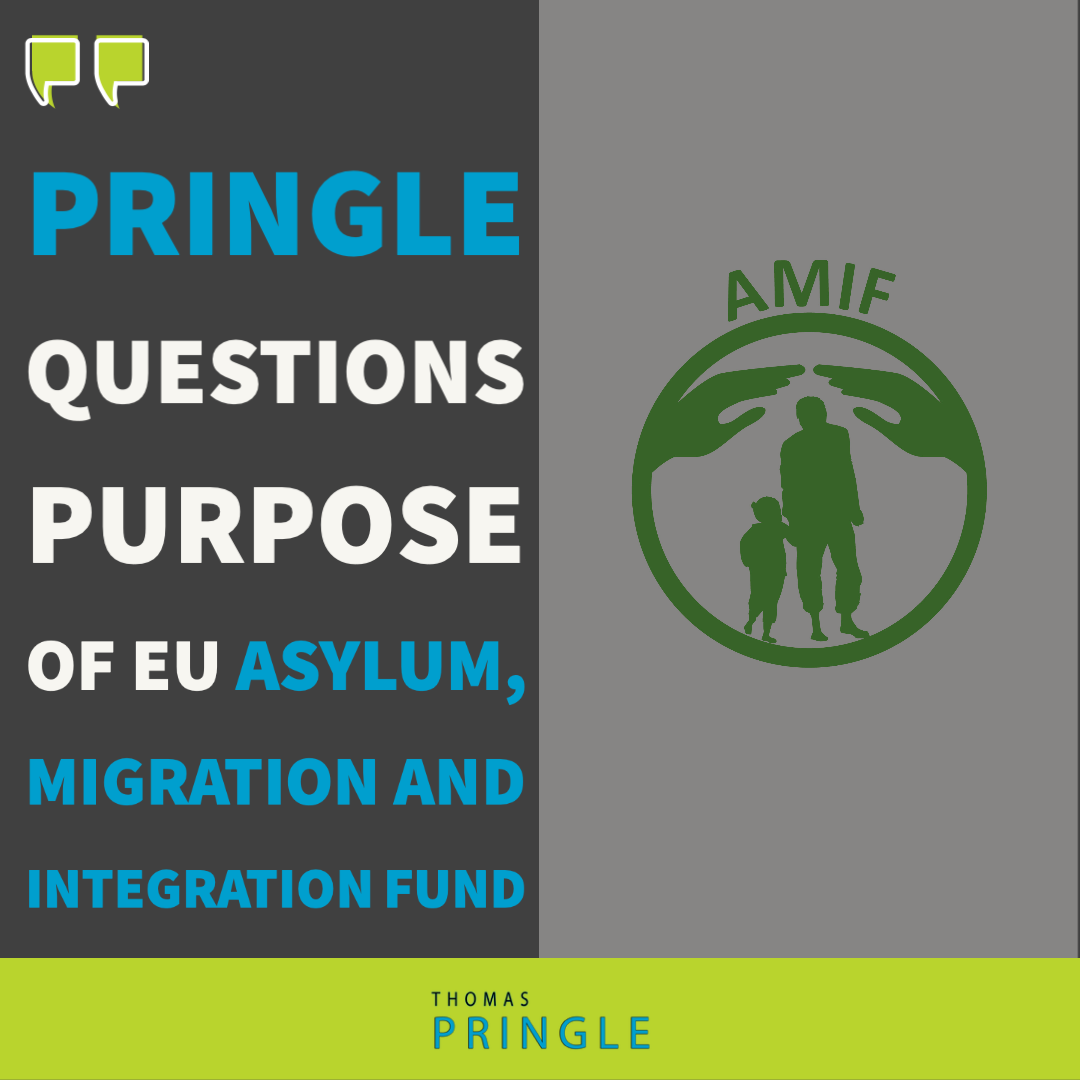- Pringle: We need a policy that recognises the importance of inshore fishing
- Pringle: Disabled people and carers face crisis of State neglect
- Pringle: Failed FF/FG housing policies forcing people to put their lives on hold
- Pringle welcomes Donegal council motion on Occupied Territories Bill: ‘We cannot stand by in the face of genocide’
Pringle questions purpose of EU Asylum, Migration and Integration Fund
- Updated: 7th February 2022

Independent TD for Donegal, Thomas Pringle, has questioned the purpose of the EU Asylum, Migration and Integration Fund, saying he believes it is intended to stop immigration into the EU from certain countries.
During a Dáil debate last Thursday on the fund, Deputy Pringle said: “I wondered as I read the document what is the real intention of it, and it seems clear to me that it is to stop immigration into the EU from war-torn and economically fragile African and Middle Eastern countries.”
Referring to regulations from the EU that govern the fund, Deputy Pringle said: “In paragraph 9 they say, ‘given that certain actions taken outside the Union contribute to the achievement of the fund’s objectives and, under certain circumstances, may bring the Union added value – which means stopping people getting here so they won’t have to deal with them – the fund should support the strengthening of partnership with third countries for the purpose of managing migration’.
“We can take this as meaning third countries like that of Libya, that are totally dysfunctional thanks to military action taken by France and the UK on behalf of oil companies in our name in years gone by. Countries where there is no functioning government, but the EU is happy to ensure that migrants are pushed back there and placed in camps and prisons that allow untold danger for them simply for wanting a better life for themselves and their families,” he said.
Deputy Pringle said: “The regulation says earlier that ‘the best interests of the child should be the primary consideration in all actions or decisions concerning children in migration’. Perhaps the Minister could explain in his summing up how that is going to be achieved by this regulation and what role countries like Libya are going to play in partnership with us in ensuring that the best interests of the child are taken care of.”
The deputy concluded: “I think these are very important issues that affect asylum seekers and how the process will be implemented in Ireland as well, and I think that needs to be addressed.”



